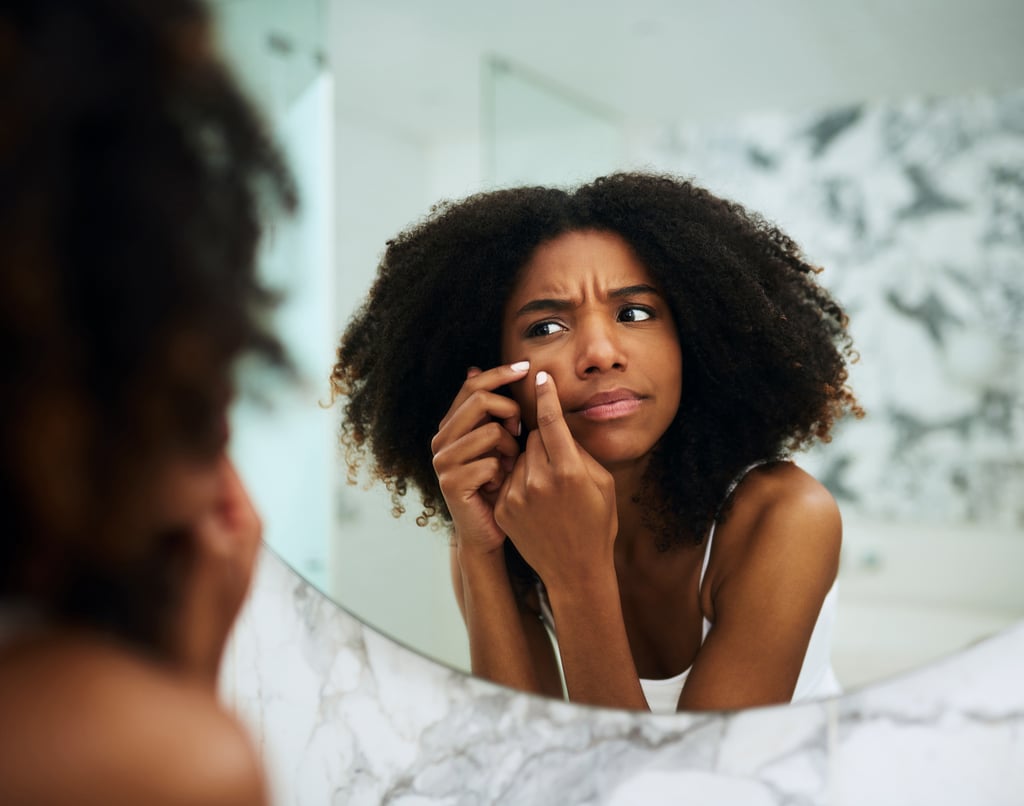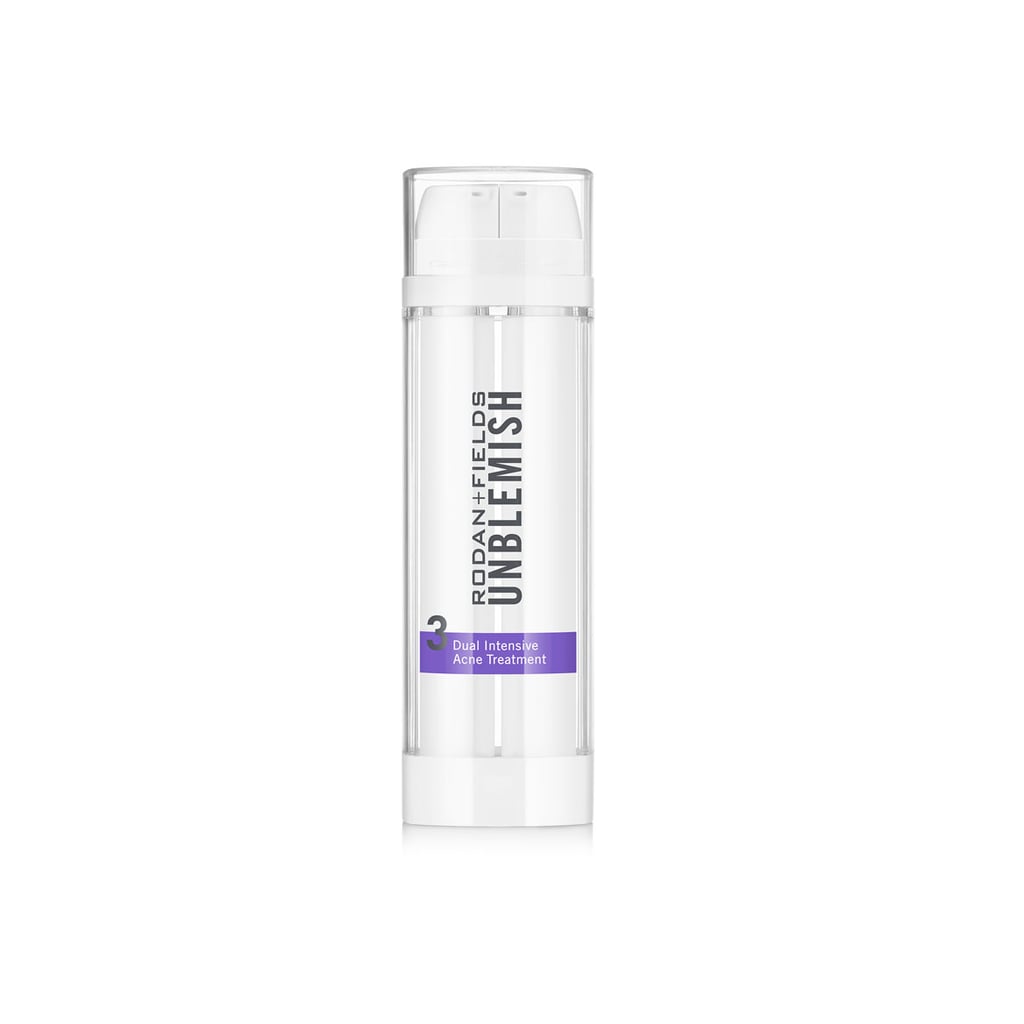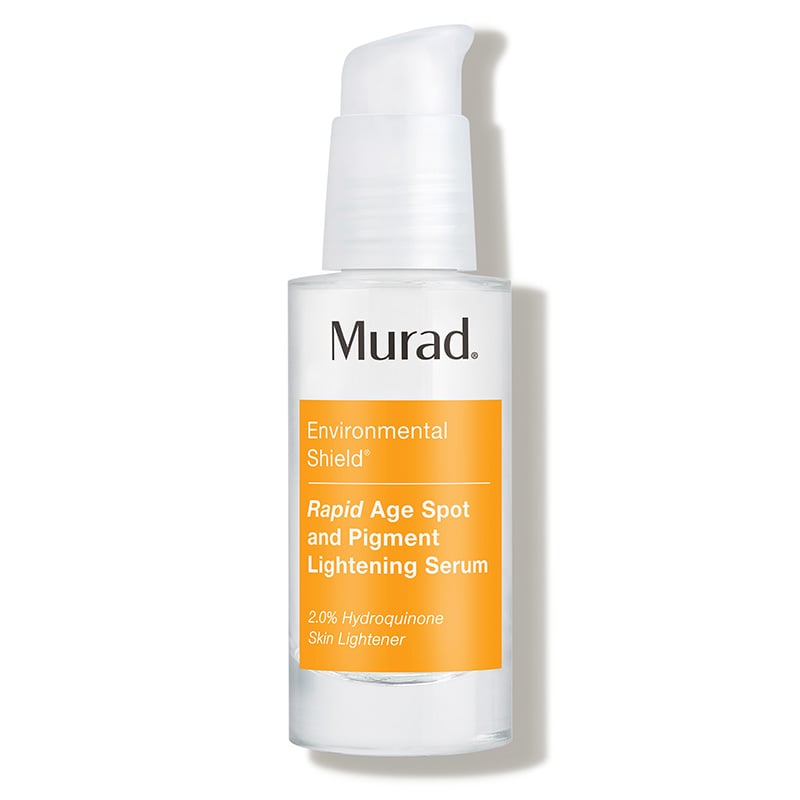Acne may be a universal concern, but its effects on certain skin types vary, meaning not every treatment works the same for everyone. Black people and people of colour, in particular, are more likely to experience scarring [1] and post-inflammatory hyperpigmentation — which occurs when the skin becomes inflamed after a pimple forms and causes an overproduction of melanin in the area — as a result of acne, so treating breakouts and flare-ups comes with a different set of rules.
To find out why this happens and how to treat breakouts if you have darker skin, we reached out to an expert for tips and product recommendations. Consider this your ultimate guide, ahead.
How Acne Treatments Work Differently For Skin of Colour
Because of darker skin's ability to hold onto pigment, using acne treatments that include ingredients that are too harsh — like retinol, benzoyl peroxide, or salicylic acid — may result in more inflammation and potential scarring.
"We hold onto brown-coloured blemishing like a sponge, which is why we need to rely on medications and treatments that not only are anti-inflammatory to treat active acne, but also implement ingredients that brighten and lighten the skin," Dr. Rita Linkner, MD [2], of Spring Street Dermatology [3] in New York City, told POPSUGAR. For this reason, people with darker skin have to be a little more particular about their acne treatment products.
Acne Treatments That Work For Darker Skin
For deeper skin tones, Dr. Linkner recommends using exfoliating ingredients like alpha hydroxy acid and glycolic acid. "They still have the prowess to control oil production, but can also boost the ability to brighten out blemishing while also assisting with the complexion," she said.
Her favourite treatment for acne-prone skin of colour is the Rodan + Fields Unblemish Dual Defencive Acne Treatment [4] ($104) "because it has both benzoyl peroxide to help alleviate active pimples and glycolic acid to brighten [the skin]."
We also love the Paula's Choice Skin-Perfecting 8% AHA Gel Exfoliant [5] ($30), Mario Badescu Glycolic Foaming Cleanser [6] ($16), and Biossance Squalane + Glycolic Renewal Mask [7] ($68), but if you're concerned about which product to use for your specific skin type, your best bet is to consult a dermatologist.
How to Treat Discoloration in Skin of Colour
Dr. Linkner said a good way to prevent blemishes from discoloring is to avoid popping and picking at pimples [8] — that's in addition to making sure you're frequently wearing (and reapplying) sunscreen [9].
"Sunscreen, sunscreen, sunscreen is so important to make sure blemishing doesn't tan and get even more stubborn to remove, especially this time of year," she said. "Additionally, it's so important not to pick acne, as this is such a trigger for making spots discolor and persist even more."
If you've already noticed dark spots or discoloration, Dr. Linkner recommends seeing a dermatologist (when you can) for a medium-depth chemical peel. "[They are] my favourite in-office treatment of acne, acne scars, and hyperpigmentation as they really resurface while being anti-inflammatory," she said. "It's a great way to check off a bunch of boxes at once."
It's worth noting that in-office treatments can come with a cost, so if a chemical peel isn't in your budget and you want to treat discoloration at home, a few of our favourite topical brightening products include Murad Environmental Shield Rapid Age Spot and Pigment Lightening Serum [10] ($72), CeraVe Resurfacing Retinol Serum [11] ($17), and SkinCeuticals Discoloration Defence [12] ($98).


